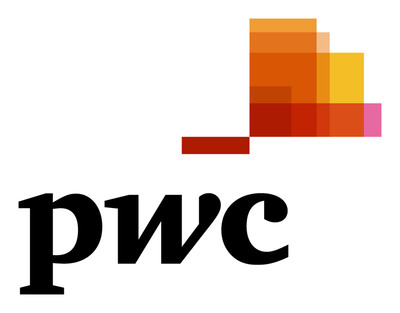
PwC logo. (PRNewsFoto/PwC)
NEW YORK, Sept. 25, 2013 /PRNewswire/ -- PwC's Health Research Institute today released the second installment of "Health Exchanges: Open for Business," which examines the early positioning by insurers and other new competitors, many of whom will be entering the individual insurance market for the first time. While the courtship of newly insured Americans begins in earnest on October 1 with open enrollment in online insurance exchanges, HRI research finds that the allure of a new customer base has insurers gingerly entering the individual market – but they face significant challenges and new competition in their efforts to attract and retain customers.
(Logo: http://photos.prnewswire.com/prnh/20100917/NY66894LOGO)
"With open enrollment about to begin, large national insurers and new players, some from other industries, are jockeying for position in the new exchange market," said Ceci Connolly, managing director, PwC's Health Research Institute. "Investment in retention programs will be crucial to securing the loyalty of a new crop of technologically-savvy buyers. Companies should think beyond initial implementation challenges and focus on building a meaningful customer experience, with an eye on cost reduction and personalized communication."
HRI conducted in-depth interviews with insurance executives, consumer experts and health policy leaders about exchange strategies and surveyed more than 100 insurance executives to understand their plans, progress and pain points related to participation in the state insurance exchanges. Some notable findings of the survey include:
- Most insurers surveyed (69 percent) plan to offer coverage on the exchanges, reflecting the rising significance of this new business opportunity
- Ten of 18 national health insurer executives said their companies won't offer exchange coverage in all the states where they currently have business, and 50 percent expected to enter additional states after 2014
- Sixty-three percent said technology integration and 61 percent said coordination of subsidies were major barriers to implementation
- Only 34 percent of insurers said understanding newly eligible customers was a major barrier to implementation, suggesting they may not thoroughly understand the challenges associated with attracting and maintaining this new group of buyers armed with the power of choice, a major shift from the wholesale approach many insurers are used to
- Nine in 10 insurance executives (91 percent) expect that premium costs, followed by total out-of-pocket costs, will be what consumers care about most
- Yet industry and consumer experts expect other factors, such as personalized communication, tangible rewards and health management programs, as well as brand recognition, will be the ultimate differentiator
"Organizations that are planning to offer coverage on the exchanges should prepare to compete in new ways to earn consumers' business and loyalty," said Sandra Hunt, principal with PwC's Health Industries practice. "Transparency around pricing, quality and customer satisfaction should be foremost in their minds as consumers become much more aware of the cost of healthcare and how to access it."
According to the report, new exchange entrants will include Medicaid managed care companies, new health plans run by large provider systems, healthcare start-ups, and non-insurer players such as web brokers and tax preparers. Their participation won't come without challenges as many will need to learn how to operate effectively in the new exchange market and manage the needs of a largely unknown population.
The latest report follows on HRI's recent analysis of what's at stake for health systems, physicians and other providers as millions of new customers enter the healthcare system for the first time. To download the Health Exchanges: Open for Business series of reports, visit: www.pwc.com/us/hix.
Note to editors: Any citations of this research must be attributed to "PwC's Health Research Institute."
About PwC Health Research Institute (HRI) PwC's Health Research Institute (www.pwc.com/hri) provides new intelligence, perspectives, and analysis on trends affecting health-related industries. The Health Research Institute helps executive decision makers navigate change through primary research and collaborative exchange. Our views are shaped by a network of professionals with executive and day-to-day experience in the health industry. HRI research is not sponsored by businesses, government, or other institutions.
About PwC's Health Industries GroupPwC's Health Industries Group (www.pwc.com/us/healthindustries) is a leading advisor to public and private organizations across the health industries, including healthcare providers, pharmaceuticals, health and life sciences, payers, employers, academic institutions and non-health organizations with significant presence in the health market. Follow PwC Health Industries at @PwCHealth.
About PwC USPwC US helps organizations and individuals create the value they're looking for. We're a member of the PwC network of firms in 158 countries with more than 180,000 people. We're committed to delivering quality in assurance, tax and advisory services. Tell us what matters to you and find out more by visiting us at www.pwc.com/US.
Learn more about PwC by following us online: @PwC_LLP, YouTube, LinkedIn, Facebook and Google +.
© 2013 PricewaterhouseCoopers LLP, a Delaware limited liability partnership. All rights reserved. PwC refers to the US member firm, and may sometimes refer to the PwC network. Each member firm is a separate legal entity. Please see www.pwc.com/structure for further details.
This content is for general information purposes only, and should not be used as a substitute for consultation with professional advisors.
SOURCE PwC US
RELATED LINKShttp://www.pwc.com/US
| < Prev | Next > |
|---|








